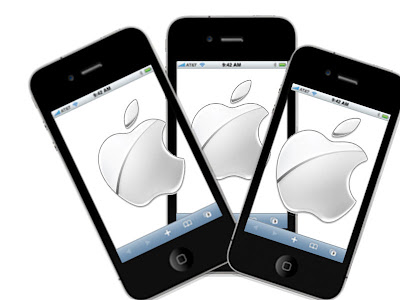As expected, Apple
has taken the wraps off of its latest flagship smartphone at its Cupertino media event
today. The new iPhone 5S is an upgrade in the vein of the previous iPhone 3GS
and iPhone 4S—it is outwardly similar to last year's iPhone 5, but it includes
a few key upgrades to keep the design going for another year.
The 5S still has a
four-inch 1136×640 display and a Lightning connector, and it retains the iPhone
5's taller and slimmer profile relative to older models like the iPhone 4 and
iPhone 4S. However, it includes a new 64-bit "desktop-class"
system-on-a-chip (SoC) dubbed the A7 that boosts CPU and GPU performance over
the A6 in the iPhone 5.
The chip has twice
the general-purpose and floating point registers of its predecessor and is up
to twice as fast at performing CPU tasks. The phone supports OpenGL ES 3.0, and
Apple claims that the graphics performance in the 5S is 56 times better than in
the original iPhone released six years ago.
The iPhone 5S will
include a "motion co-processor" called the M7 that allows the phone
to process data from sensors without waking up the phone itself. Apple intends
for the chip to be used for "health and fitness solutions"—effectively
a replacement for fitness-tracking devices—with data processed by the core
motion API.
Apple is also
upgrading the phone's camera with a new five-element lens at an f2.2 aperture
and a 15 percent larger sensor. The company is opting for "bigger pixels
rather than more," with 1.5-micron pixels.
The new
"true-tone" flash uses dual LEDs (one warmer and one cooler) to
account for the lighting in the room and to light the shot optimally according
to the camera app's monitoring. Apple says that this will result in "more
neutral skin tones and better colors." The iPhone 5S will also be able to
take multiple photos with a single shutter trigger and then choose the best one
automatically rather than saving the whole handful to memory.
Auto image
stabilization and burst mode are new features in the camera, as is 120 FPS
video captured at 720p resolution. The phone can also still capture 1080p video
at 30 FPS.
A "Touch ID
sensor" for reading fingerprints is embedded in the home button and can be
used to unlock your phone in addition to the traditional software passcodes. A
fingerprint is read at 500 PPI resolutions and can scan sub-epidermal skin
layers.
This article is taken from arstechnica.
It is obvious that iPhone users love to have amazing applications that can fulfill their requirement and provide them leisure and fun. So, Mobile Apps Development Team can be your better option to develop your required iPhone apps.






